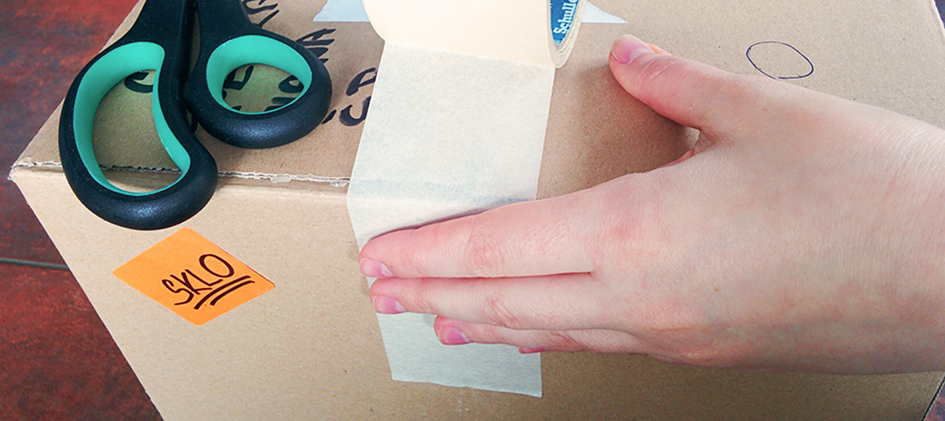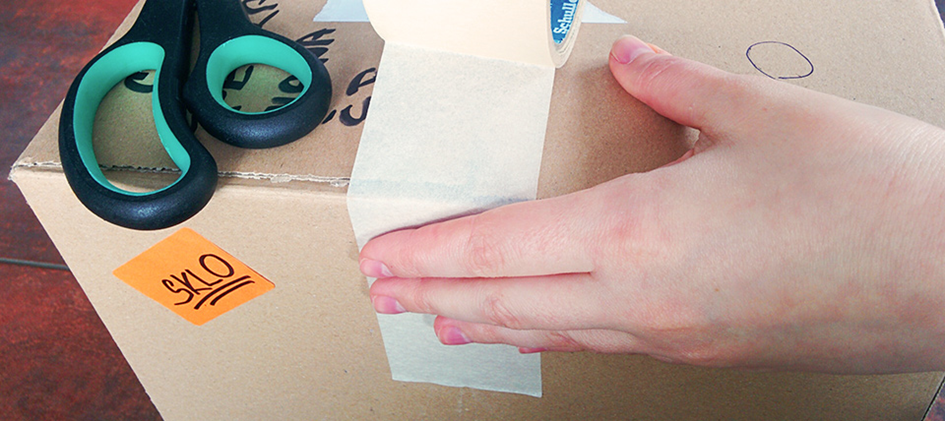How to move for the weekend
Moving in a day or two is no problem. With good preparation and organisation you can be done in an afternoon. We'll advise you on how to plan everything to make the move go smoothly.

Weekend moves are a common choice for all working and school-age people. It doesn't disrupt the weekday schedule and doesn't use up vacation days that are primarily for rest. However, if you need to extend your weekend by a day or two, remember that you are legally entitled to time off for moving. So don't be afraid to contact your employer.
You can arrange your move over the weekend either by yourself or with a removal company. But if you don't want to break your back, leave the hard work to the professionals. They have both the necessary equipment and the muscle. Quality moving companies move on weekends and holidays at no extra charge.
Prepare quality packing materials and other props
Careful preparation is the key to fast and quality packing. Put all the things you'll need in one place at home - tape, labels, pencils, markers, scissors, bubble wrap, plastic bags and sacks, paper bags and wooden, plastic or cardboard boxes. When packing appliances, it is ideal if you also have the original packaging. If you can't find the original boxes, wrap the equipment in bubble wrap and then place it in a standard box. If it's filled with polystyrene balls, this will be ideal.
Photograph, draw or describe the schematic of more complex equipment, such as a computer or TV, before packing. This will make it quicker to plug all the cables back into place when you're setting it up again. If you're also disassembling furniture, insert the individual screws and components

TIP: If you're moving with us, you don't need to find any boxes or packing materials. We will be happy to provide you with moving boxes and quality packaging free of charge.
Get rid of what you don't need
Be uncompromising in this regard. Send on what you haven't used for a year or two. Many of us unnecessarily surround ourselves with things that "might come in handy someday" and then have closets full of useless stuff. You'll find that the less you store, the better your home will be to live in. You can sell, donate, or throw away unnecessary things. You can also use a salvage yard where you live to drop off smaller and larger items that you no longer need.
What can you drop off at the collection yard?
- Old furniture
- Carpets
- mattresses
- electrical appliances
- batteries
- mobile phones
- fluorescent lamps
- textiles and shoes
- skis, sledges, bobsleighs
- bicycles
- hazardous household waste (containing residues of oils, fats, hazardous substances, absorbents, etc.)
Don't clutter your new home with things you will soon be moving
If you don't have your house or apartment completely ready yet, take advantage of parcel storage and finish the remaining work in peace. Store furniture and items you don't need immediately in the moving company's heated storage room, where everything will be locked away safely. You can also give your possessions temporary shelter in your garage, basement or barn. But in this case, be careful about security and indoor conditions. A damp, cold or too warm environment could make your belongings unusable.
Pack fragile items extra carefully
Once you've sorted your stuff, get down to the actual packing. Stack your clothes, books, toys, textiles and light household accessories into classic cardboard boxes. Place kitchen utensils, fragile accessories, ornaments and small electronics in plastic containers. Smaller and lighter items such as jewellery, school supplies, cosmetics or accessories can easily be transported in sturdier paper or plastic bags.
Glasses, ceramic mugs and other small pieces prone to breakage should always be packed one at a time. Ideally, wrap the crockery in bubble wrap or, if there's nothing else, in newspaper. Then gently transfer everything into the boxes and try shaking it gently. You should not hear any clinking. If there is such a sound, it means that something is not sufficiently packed and you need to repeat the procedure. Finally, be sure to write on the box fragile (ideally on at least two sides) so that whoever will be carrying the box handles it properly.

Pack the things you need first, pack last
Pack seasonal items and those you don't use much first. Last, then the most used clothes and items. Ideally, you should prepare a special suitcase with all the essentials for the first few days in your new home. Put important documents, valuables, hygiene products, medicines and clothes in it. And keep the vagaries of the weather in mind. If the forecast for the next few days is not favourable, keep a box of warmer clothes on top. Or vice versa.
Secure parking spaces
If you're using a removal company, you don't need to worry about parking at all. The removal team will arrange their own parking bays at the moving location and at the destination. And it's free of charge. However, if you are transporting your belongings yourself, be sure to arrange the necessary parking space and furniture handling in good time. Often people forget to do this, and then the whole move is unnecessarily prolonged.
Finally, sort out all the paperwork
The move itself is not the end of the moving process. Usually there is still the necessary paperwork, paperwork and a round of offices. If you are moving within the same municipality, you have a few fewer worries, but you can still avoid minor paperwork. Once you're done moving, don't forget to report your change of residence to the relevant authorities.